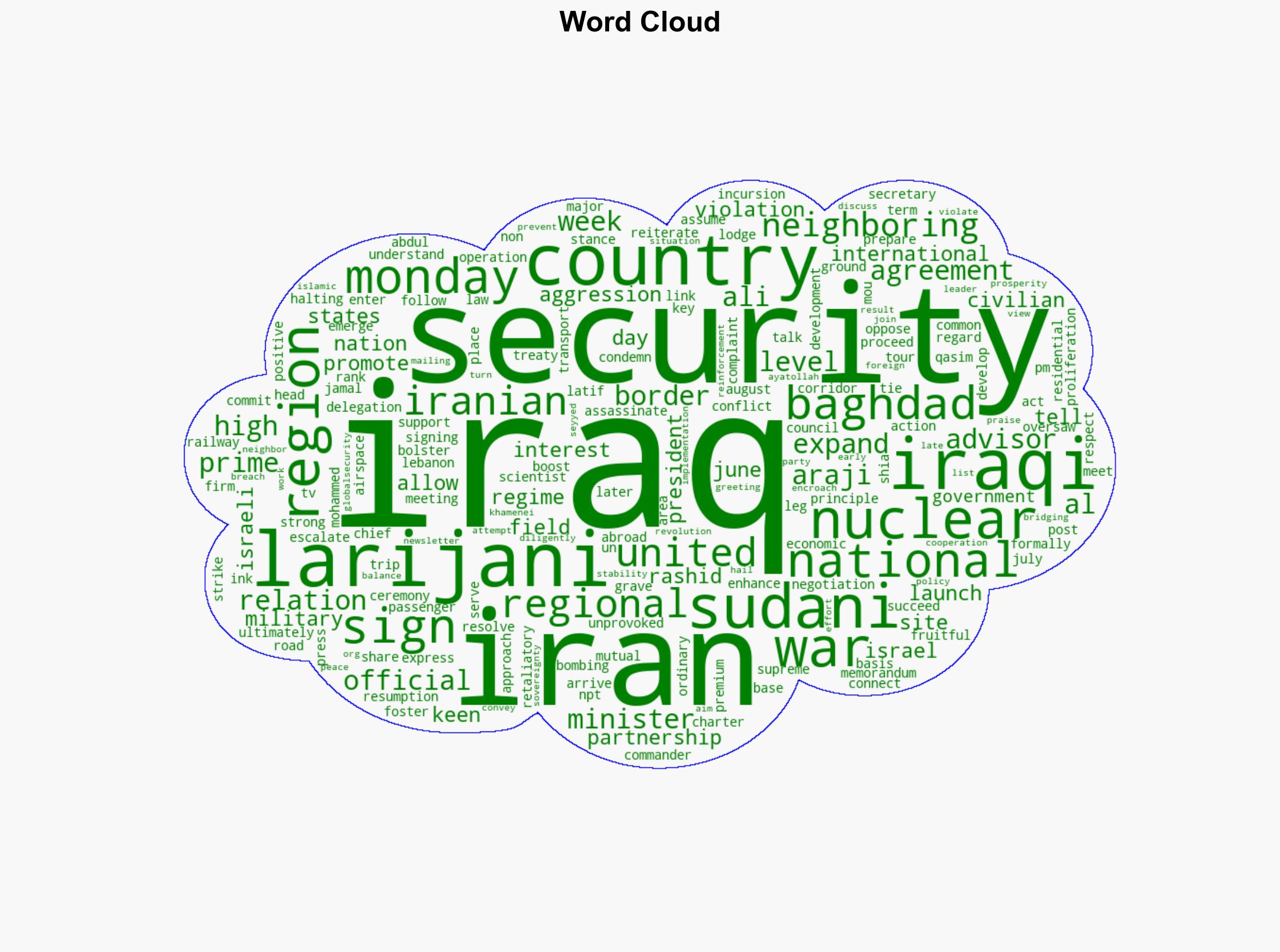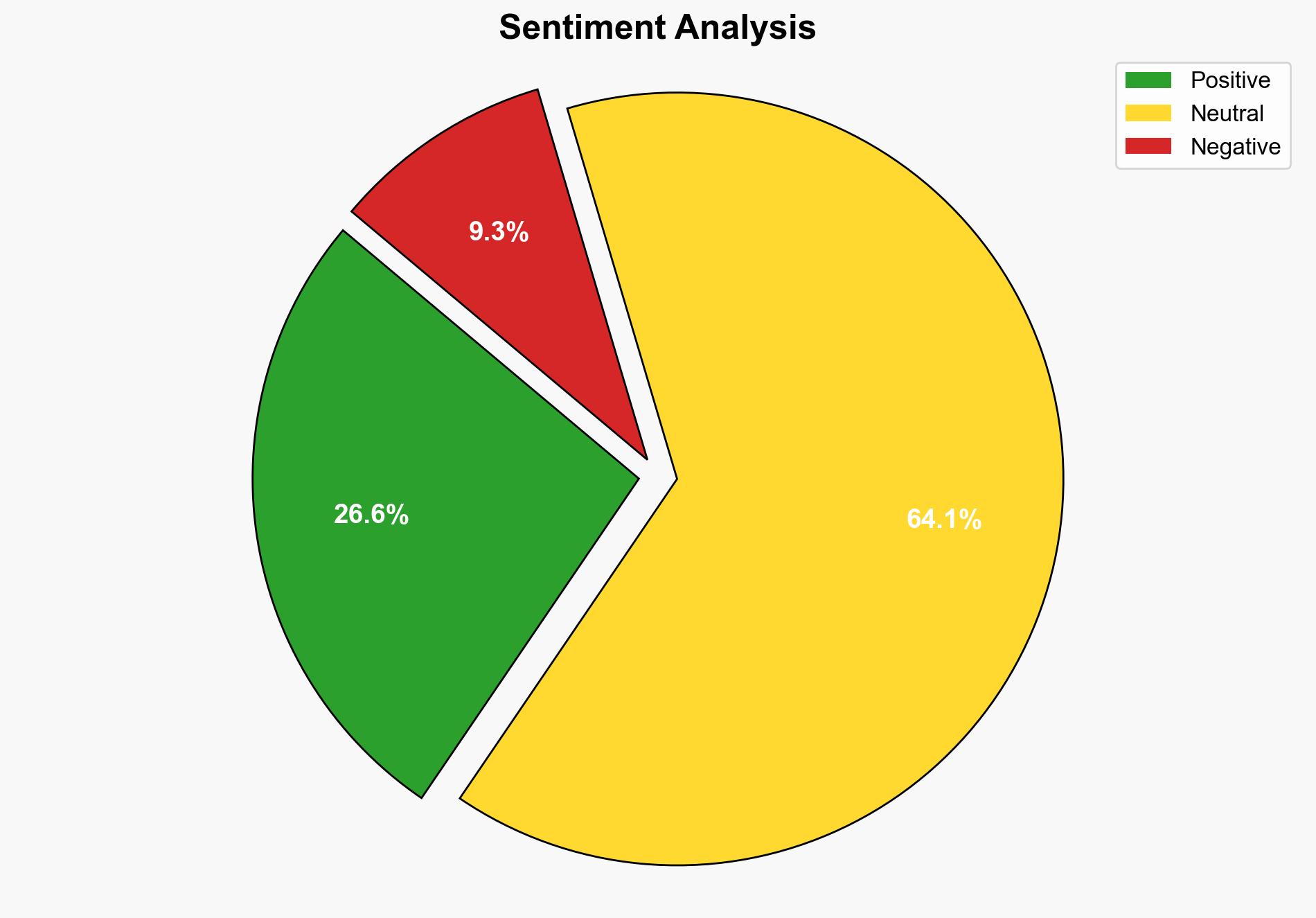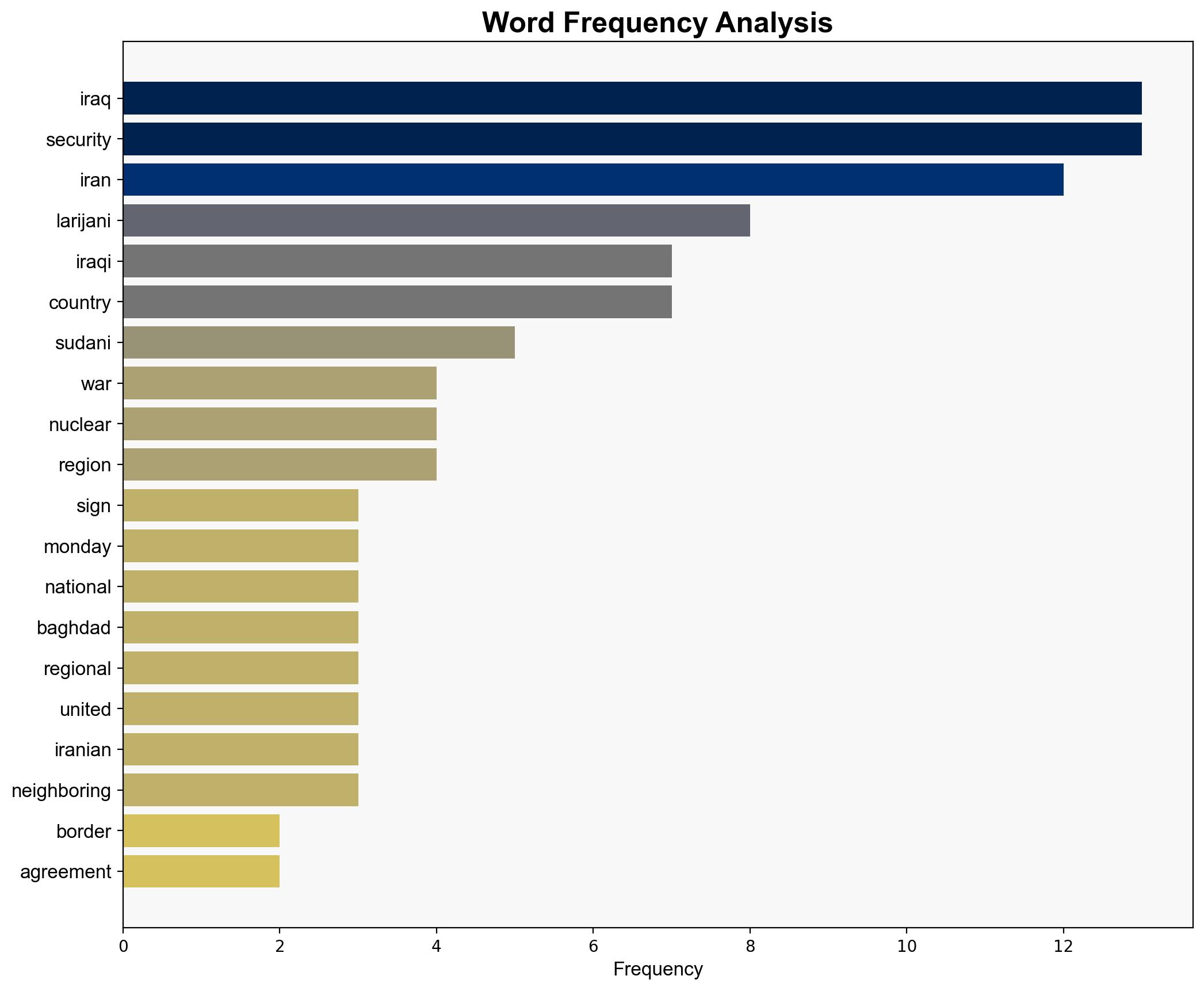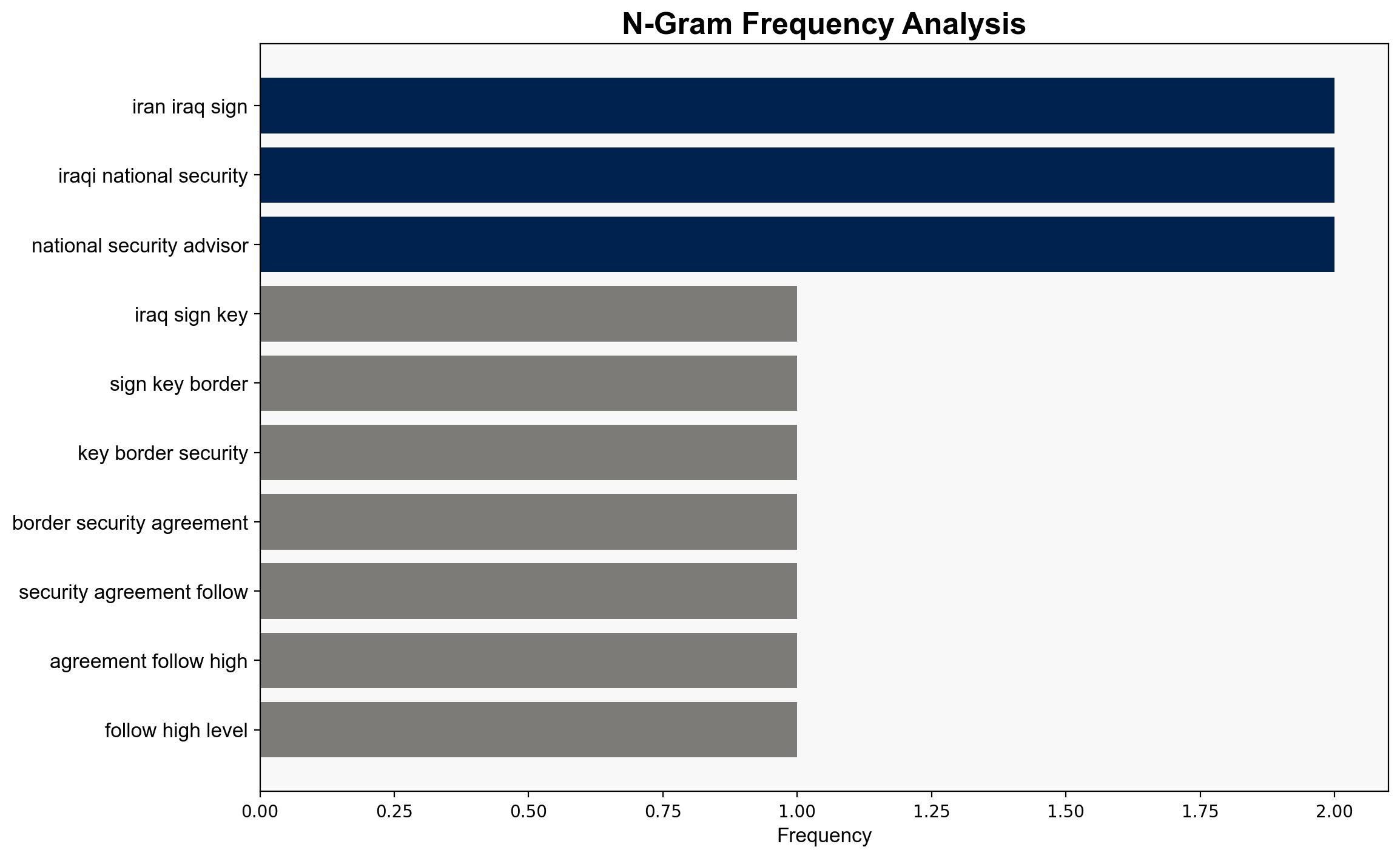Iran Iraq sign key border security agreement following high-level talks – Globalsecurity.org
Published on: 2025-08-12
Intelligence Report: Iran Iraq sign key border security agreement following high-level talks – Globalsecurity.org
1. BLUF (Bottom Line Up Front)
The signing of the Iran-Iraq border security agreement likely aims to enhance bilateral relations and stabilize regional security, with a moderate confidence level. The hypothesis that this agreement is primarily a strategic move to counter external threats, particularly from Israel and the U.S., is better supported. Recommended action includes monitoring the implementation of the agreement and potential regional responses, particularly from Israel and the U.S.
2. Competing Hypotheses
1. **Hypothesis A**: The agreement is primarily intended to strengthen bilateral relations and economic cooperation between Iran and Iraq, focusing on mutual benefits such as infrastructure development and trade.
2. **Hypothesis B**: The agreement is a strategic maneuver to counter perceived external threats, particularly from Israel and the U.S., by solidifying a security alliance that deters aggression and enhances regional influence.
Using ACH 2.0, Hypothesis B is more supported due to the context of recent tensions involving Israel and the U.S., as well as statements from Iraqi officials condemning Israeli actions and expressing support for Iran.
3. Key Assumptions and Red Flags
– **Assumptions**: Both hypotheses assume that Iran and Iraq have aligned interests and that the agreement will be effectively implemented.
– **Red Flags**: Potential cognitive bias exists in underestimating internal political dynamics within Iraq that could affect the agreement’s implementation. The absence of explicit details on enforcement mechanisms is a concern.
– **Deception Indicators**: The public emphasis on mutual respect and economic cooperation may mask underlying security motivations.
4. Implications and Strategic Risks
– **Geopolitical**: Strengthened Iran-Iraq ties could shift regional power dynamics, potentially provoking responses from Israel and the U.S., leading to increased tensions.
– **Economic**: Enhanced cooperation may boost economic ties, but could also lead to sanctions or economic pressure from opposing states.
– **Security**: The agreement may deter direct aggression but could also escalate proxy conflicts or cyber operations.
5. Recommendations and Outlook
- Monitor the implementation of the agreement and regional responses, particularly from Israel and the U.S.
- Engage in diplomatic efforts to mitigate potential escalations and encourage transparency in the agreement’s execution.
- Scenario Projections:
- **Best Case**: The agreement leads to enhanced regional stability and economic growth.
- **Worst Case**: Escalation of regional conflicts involving proxy actors.
- **Most Likely**: Incremental improvement in bilateral relations with periodic regional tensions.
6. Key Individuals and Entities
– Qasim al-Araji
– Ali Larijani
– Mohammed Shia al-Sudani
– Abdul Latif Jamal Rashid
– Ayatollah Seyyed Ali Khamenei
7. Thematic Tags
national security threats, cybersecurity, counter-terrorism, regional focus





